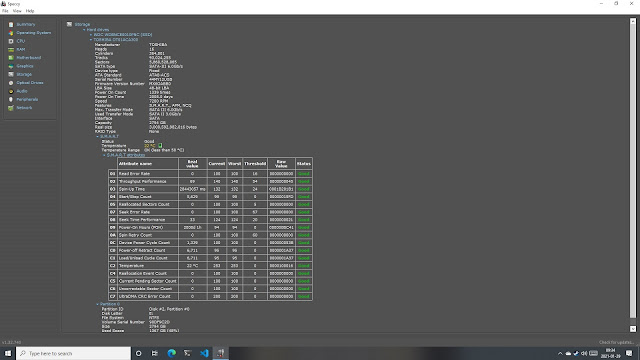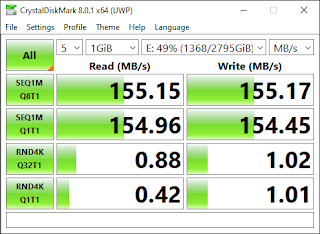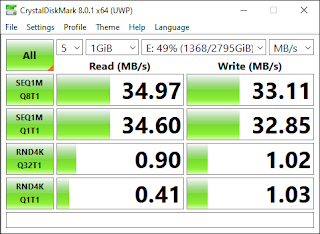Attempts to start Plex, or fire up Speccy to see if I could get a smart reading, was causing my 3 TB drive to dismount. Read access at least has proven reliable, and despite the drive’s age it doesn’t sound like hell.
Since the important stuff on that drive is copied to my backups drive, and a copy of the backups drive is periodically sent to it: data loss would have been minimal if it went duddaaa splat like my old 1 TB did. Risk of loss was most of my Plex content, and the local mirror of my backups.
Last time I replaced a failing drive: one of the 1 TB drives I bought back in January 2013 died. Of course it was the one used for backups, and a short time after I started backing up the backups in full rather than the most vital parts. Which turned out to be rather handy, even if most stuff on ny backups drive are files I won’t cry if they’re lost—unlike my photo albums.
Faced with a drive going wonkers, and limited time. I did some planning and found myself buying a pair of 8 TB drives — because the price was so good, I decided to get a spare.
Since taking a day to migrate my unbacked up media over to the new 8 TB drive, I’ve also decided to shift gears on how my dual drive arrangement works.
How it’s been done:
- Backups drive
- Plex drive
Originally these were both 1 TB drives. The 3 TB in question replaced one when various retro fittings occurred. The 1 TB that failed a year or two ago was replaced with a 2 TB. But otherwise things remained the same.
Rather than backup vitals pike photos from Plex to Backups, and then mirror Backups to Plex just in case. I’ve decided to integrate everything into one drive.
Such that one new 8 TB drive is the complete data set. Backups, Plex, etc. Thus the 2 TB drive can go on to replace either the 2013-era 1 TB drive hanging out of my xbox, or the roughly as old 1 TB used to backup my laptop’s 0.5 TB drive. It could even serve as an extra backup of the most important parts. I’ll figure that out later.
I chose to buy a second 8 TB drive in part because the prices are so nice. And because it’s big enough that whatever fits on the new “Master” drive can also fit on the spare.
The open loop is how I want to handle backups in this new arrangement.
Periodically mirroring the master to the backups would leave me with an automation that makes the spare ready to rock and roll. Syncing up once or twice a month is sufficient risk prevention for my needs. In that time period, data at risk typically exists on other devices or offsite.
Alternatively, I could simply use the “Spare” as a destination for backups of the new master. Similar to how I take care of my file server’s system drive being backed up to the “Backups” drive that is now a folder on the master. Ditto other machines are backed up to that location in similar ways but less frequently.
As I see it the differences are moot from la failure rate perspective.
Mirroring on a monthly basis will generate ample file accesses; the difference is the “Spare” won’t have the wakeful workloads of the “Master”. By contrast the various backup software I rely on, can easily toss differential backups but doesn’t make the drive ready to rock. Doing so will still generate load on the drive whenever the operation occurs.
Thus I find myself favoring the approach where recovery is change mount point, go by new drives. One to replace failure, and one to decommission the spare for less sensitive uses.


